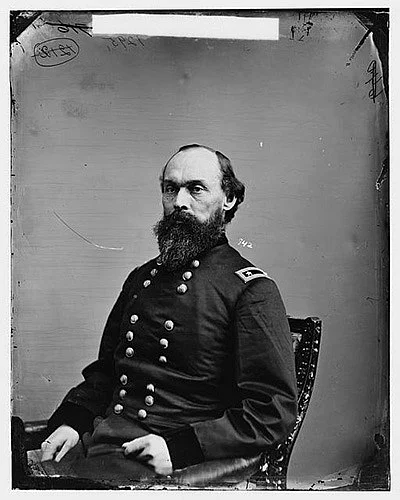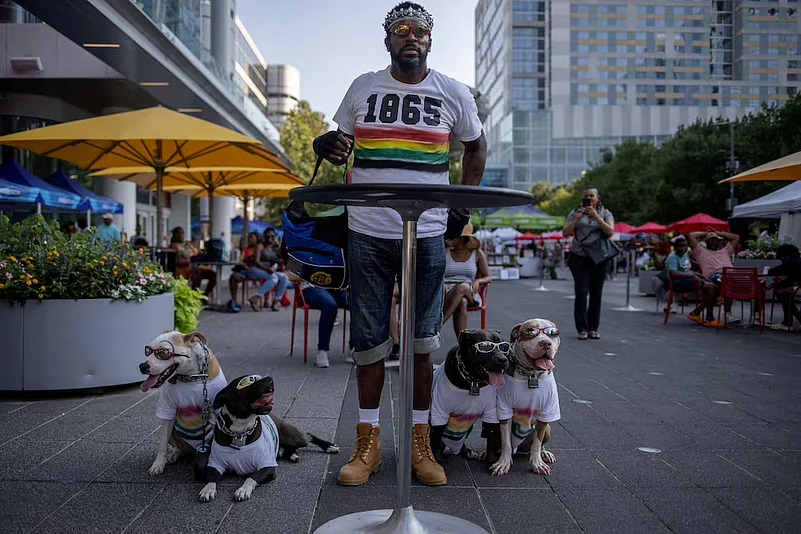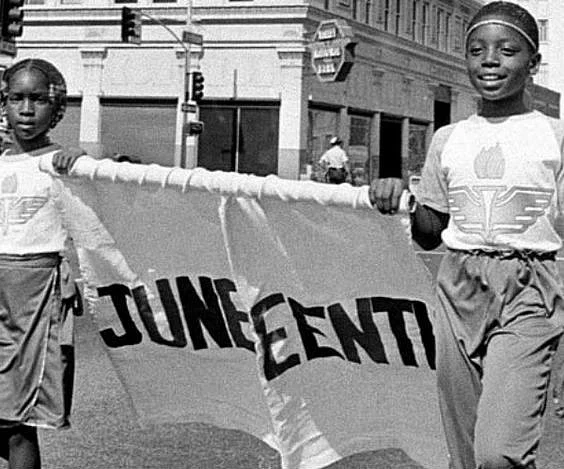Juneteenth, celebrated on June 19 every year, marks a milestone moment in American history. Originating from the late 1800s, this holiday commemorates the emancipation of enslaved African Americans in the United States. Over the years, Juneteenth has grown in significance and is now recognized as a federal holiday, reflecting its importance in the nation's journey towards equality.
Why do we celebrate Juneteenth?
Juneteenth is celebrated to commemorate the end of slavery in the United States. The celebrations began with the enslaved people in Galveston, Texas, marking a pivotal moment when they were finally informed of their freedom.
Although President Abraham Lincoln issued the Emancipation Proclamation on January 1, 1863, declaring that all slaves in Confederate states were free, the enforcement of this proclamation largely depended on the advance of Union troops. As a result, many places in the South, including Texas, did not immediately free their enslaved populations. It wasn't until the Civil War ended in 1865 that the proclamation could be effectively enforced throughout the South.Even then, some slaveholders resisted sharing the news of freedom with those they had enslaved.

On June 19, 1865, approximately two months after Confederate General Robert E. Lee surrendered to Union General Ulysses S. Grant at Appomattox, Virginia, Union General Gordon Granger arrived in Galveston, Texas. General Granger brought with him General Order No. 3, which announced the end of the Civil War and proclaimed the freedom of all enslaved people in Texas. This was the first time many enslaved people in Texas learned of their freedom, despite the Emancipation Proclamation having been issued more than two and a half years earlier.
He declared: “The people of Texas are informed that, in accordance with a proclamation from the Executive of the United States, all slaves are free. This involves an absolute equality of personal rights and rights of property between former masters and slaves, and the connection heretofore existing between them becomes that between employer and hired labor.”

The abolition of slavery was cemented later that year when Georgia ratified the 13th Amendment in December 1865, officially outlawing slavery in the United States.
Over time, Juneteenth has grown in significance and is now celebrated across the United States and beyond, serving as a day to honor African American history and culture, and to reflect on the enduring struggle for equality and justice.
When did Juneteenth become a federal holiday?
While Juneteenth has been celebrated for over a century, it wasn't until the late 20th and early 21st centuries that the holiday gained broader recognition. In 1980, Texas became the first state to designate Juneteenth as an official holiday. Gradually, other states followed suit, and by the early 2000s, all 50 states and the District of Columbia recognized the day in some form.
However, the push for federal recognition gained momentum in the wake of nationwide protests against police brutality in 2020, following the deaths of Black Americans like George Floyd and Breonna Taylor.
In the House, the measure passed with a vote of 415 to 14. All of the opposition came from Republicans, based on the argument that naming the new holiday Juneteenth Independence Day, in a manner similar to July 4, would cause confusion and force Americans to choose a celebration of freedom based on race.

On June 17, 2021, President Biden signed the bill into law, making Juneteenth the 11th holiday recognized by the federal government. During a White House ceremony, President Biden highlighted the contributions of Opal Lee, an activist who, at the age of 89, walked from her home in Fort Worth to Washington, D.C., and called her “a grandmother of the movement to make Juneteenth a federal holiday.”
The law took effect immediately, and the first federal Juneteenth holiday was celebrated the next day, observed on June 18 since June 19 fell on a Saturday.
How did Juneteenth become an important celebration?
Juneteenth has become a symbol of freedom and a reminder of the long and ongoing struggle for civil rights in the United States. After the killing of George Floyd, a 46-year-old Black man who died in the custody of the Minneapolis Police in May 2020, thousands of people across the United States took to the streets in protest. The names of George Floyd, Breonna Taylor, Ahmaud Arbery, David McAtee, and others became rallying cries for change, giving way to the famous 'Black Lives Matter' movement.
This push for change manifested in various ways. In Minneapolis, officials banned the use of chokeholds and strangleholds by the police. It was mandated that officers must intervene and report any use of unauthorized force.

Democrats in Congress introduced legislation that targeted police misconduct and racial discrimination, representing the most expansive intervention in policing proposed in recent memory.
Companies across different sectors voiced support for the Black Lives Matter movement and either suspended or fired employees who mocked George Floyd's death or made racist remarks.
In April 2021, Derek Chauvin, a former Minneapolis police officer, was found guilty of two counts of murder in the death of George Floyd.
Following the 2020 protests, the holiday has taken on new importance as a time for reflection, activism, and education. Community service projects, discussions on racial disparities, and educational panels are now integral parts of Juneteenth celebrations.
Juneteenth serves as a reminder of the fragility of freedoms and the sacrifices made to achieve them. It highlights the importance of continuing the fight against racial injustice and ensuring that all Americans can enjoy true equality.

How is Juneteenth celebrated?
The first Juneteenth celebrations began in 1866, with newly freed African Americans in Texas marking the day with prayer meetings, family gatherings, and annual pilgrimages to Galveston. Over time, these celebrations evolved to include parades, concerts, and readings of the Emancipation Proclamation.
In 1872, a group of African American ministers and businessmen in Houston purchased 10 acres of land to build Emancipation Park, dedicated to holding the city's annual Juneteenth celebrations. This tradition of community gatherings has continued to grow and spread across the United States.
In modern days, Juneteenth celebrations are diverse and vibrant, reflecting the holiday's deep roots and evolving significance. The holiday is used as an opportunity for activism and education. Community service projects address racial disparities, and educational panels discuss topics like healthcare inequities and the need for parks and green spaces.
In Galveston, Texas, where Juneteenth originated, celebrations include re-enactment marches, parades, and festivals. The city dedicated a 5,000-square-foot mural in 2021 and continues to be a focal point for Juneteenth activities.

Like many holidays, Juneteenth has also experienced commercialization. Retailers, museums, and other venues sell Juneteenth-themed T-shirts, party ware, and ice cream. However, some marketing efforts have misfired, provoking backlash on social media.
Supporters of the holiday strive to ensure that Juneteenth celebrators remember the day's significance. Dee Evans, national director of communications for the National Juneteenth Observance Foundation, emphasized in 2019, “In 1776 the country was freed from the British, but the people were not all free. June 19, 1865, was actually when the people and the entire country was actually free.”





























